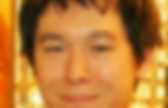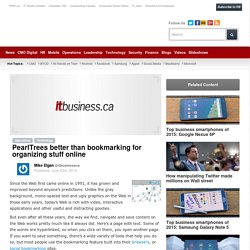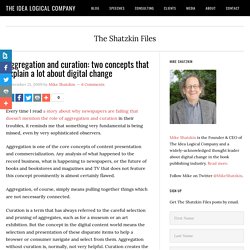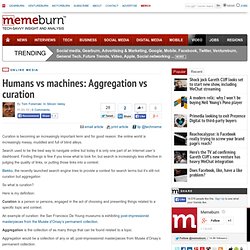

PearlTrees better than bookmarking for organizing stuff online. Since the Web first came online in 1991, it has grown and improved beyond anyone’s predictions.

Unlike the gray background, mono-spaced text and ugly graphics on the Web in those early years, today’s Web is rich with video, interactive applications and other useful and distracting goodies. But even after all these years, the way we find, navigate and save content on the Web works pretty much like it always did. Here’s a page with text. Some of the words are hyperlinked, so when you click on them, you open another page. If you want to save something, there’s a wide variety of tools that help you do so, but most people use the bookmarking feature built into their browsers, or social bookmarking sites. But now there’s a conspicuously innovative new option. The service is functionally similar in some ways to social bookmarking sites, but its core function is “curation,” which Wikipedia defines as the “selection, preservation, maintenance, and collection and archiving of digital assets.”
Pipes - Tutorials. Aggregation and curation: two concepts that explain a lot about digital change. Aggregation and curation: two concepts that explain a lot about digital change Every time I read a story about why newspapers are failing that doesn’t mention the role of aggregation and curation in their troubles, it reminds me that something very fundamental is being missed, even by very sophisticated observers.

Aggregation is one of the core concepts of content presentation and commercialization. Any analysis of what happened to the record business, what is happening to newspapers, or the future of books and bookstores and magazines and TV that does not feature this concept prominently is almost certainly flawed. Aggregation, of course, simply means pulling together things which are not necessarily connected. Curation is a term that has always referred to the careful selection and pruning of aggregates, such as for a museum or an art exhibition. NOcontent makes its way from its creator to the public without aggregation. Newspapers are obviously aggregators and curators. 1. 2. 3. 4. 5. Aggregators, curators, and indexers: There’s a difference, and it matters.
Aggregation. Curation. Indexing. They’re all the same, aren’t they? Ask any serious online journalist or new media entrepreneur, and the answer will be quick and obvious: of course not! But in the public debate over the future of journalism — especially the debate as framed by legal analysts and public officials — the words often get thrown around as if they are identical. To get a sense of how I thought these terms were being increasingly lumped together, and some of the problems this might cause, I wanted to highlight the first couple paragraphs from the written materials distributed at the Online Media Legal Network’s “Journalism’s Digital Transition,” which was a conference I attended at Harvard a few weeks ago.
Are Google News, Huffington Post, and Newser.com the same? So what’s actually going on online? The first dozen paragraphs of TWIR are usually broken down into three or four “hot topics” that are big in the future of journalism world that week. For me, the lesson is simple. Humans vs machines: Aggregation vs curation. Curation is becoming an increasingly important term and for good reason: the online world is increasingly messy, muddled and full of blind alleys.

Search used to be the best way to navigate online but today it is only one part of an Internet user’s dashboard. Finding things is fine if you know what to look for, but search is increasingly less effective in judging the quality of links, or putting those links into a context. Blekko, the recently launched search engine tries to provide a context for search terms but it’s still not curation but aggregation So what is curation? Here is my definition: Curation is a person or persons, engaged in the act of choosing and presenting things related to a specific topic and context. An example of curation: the San Francisco De Young museums is exhibiting post-impressionist masterpieces from the Musée d’Orsay’s permanent collection. Aggregation is the collection of as many things that can be found related to a topic.